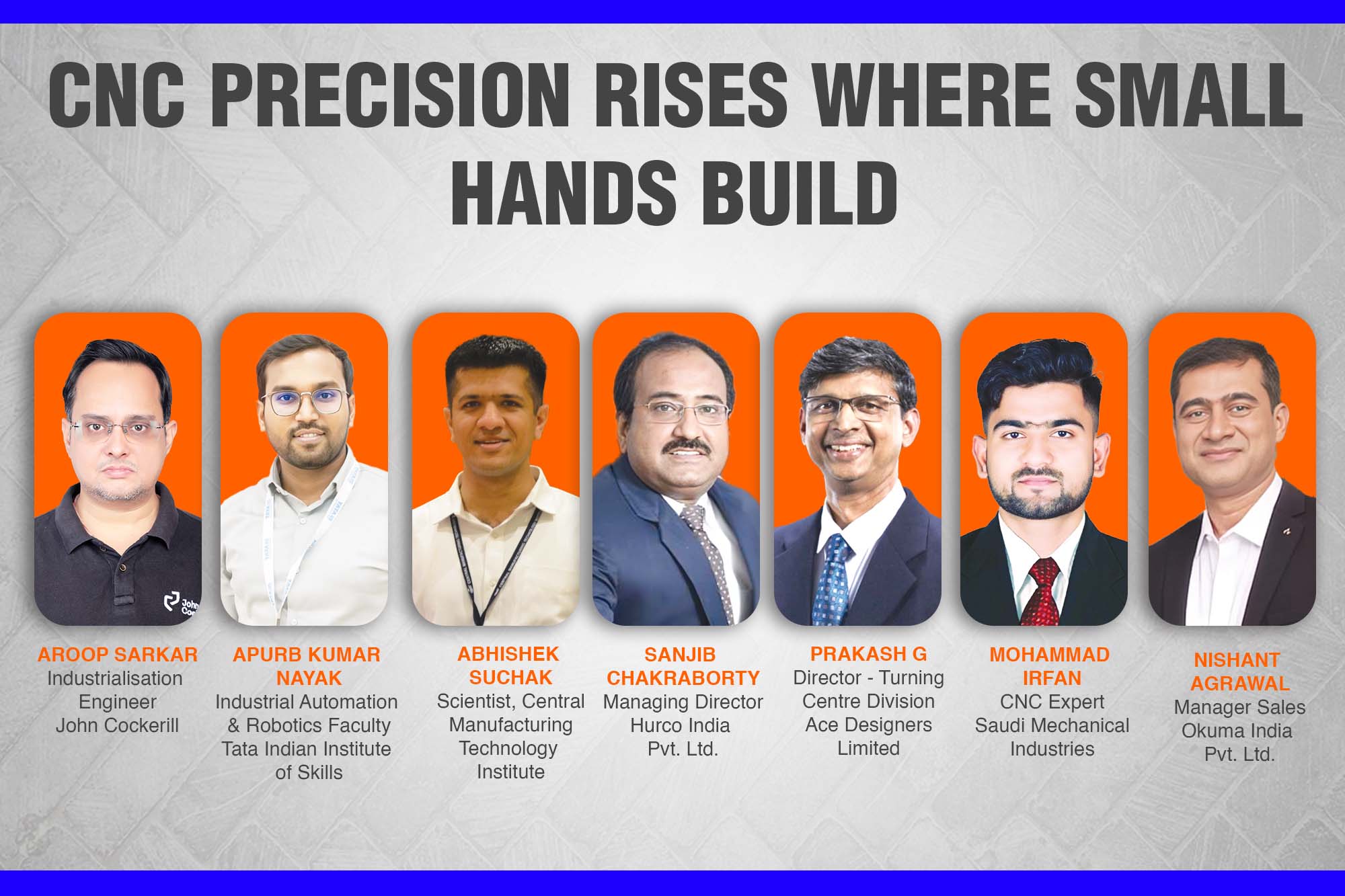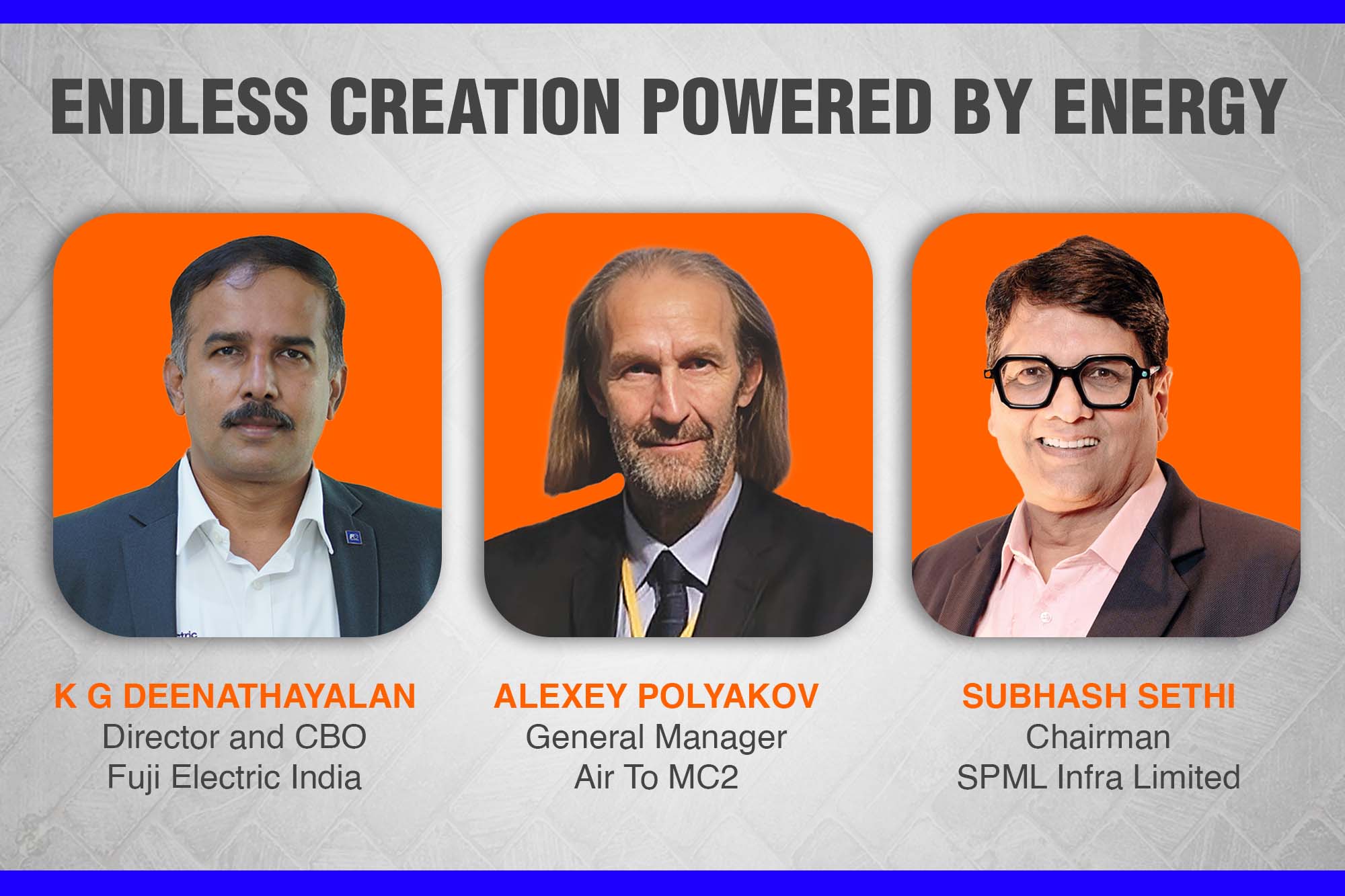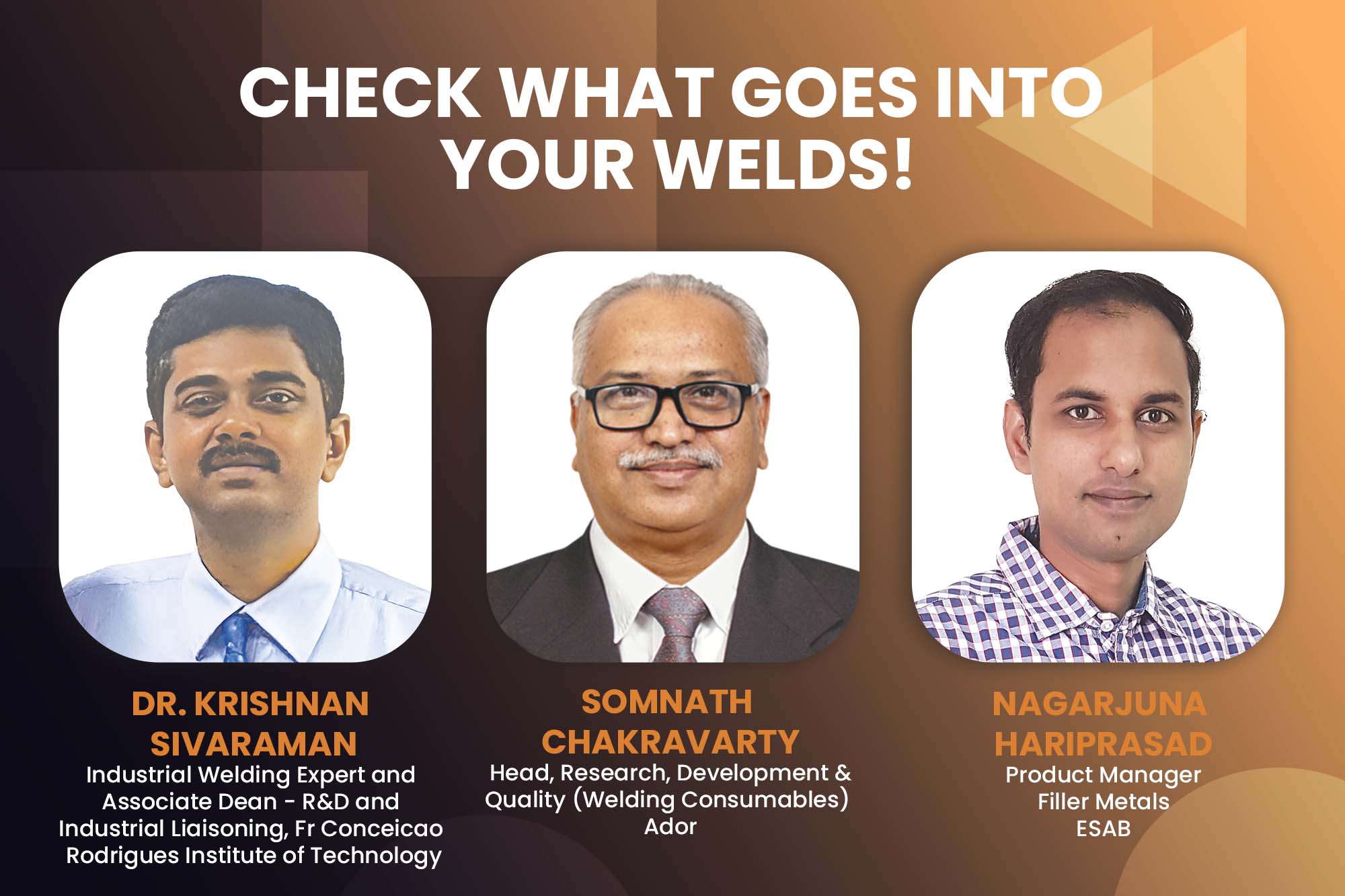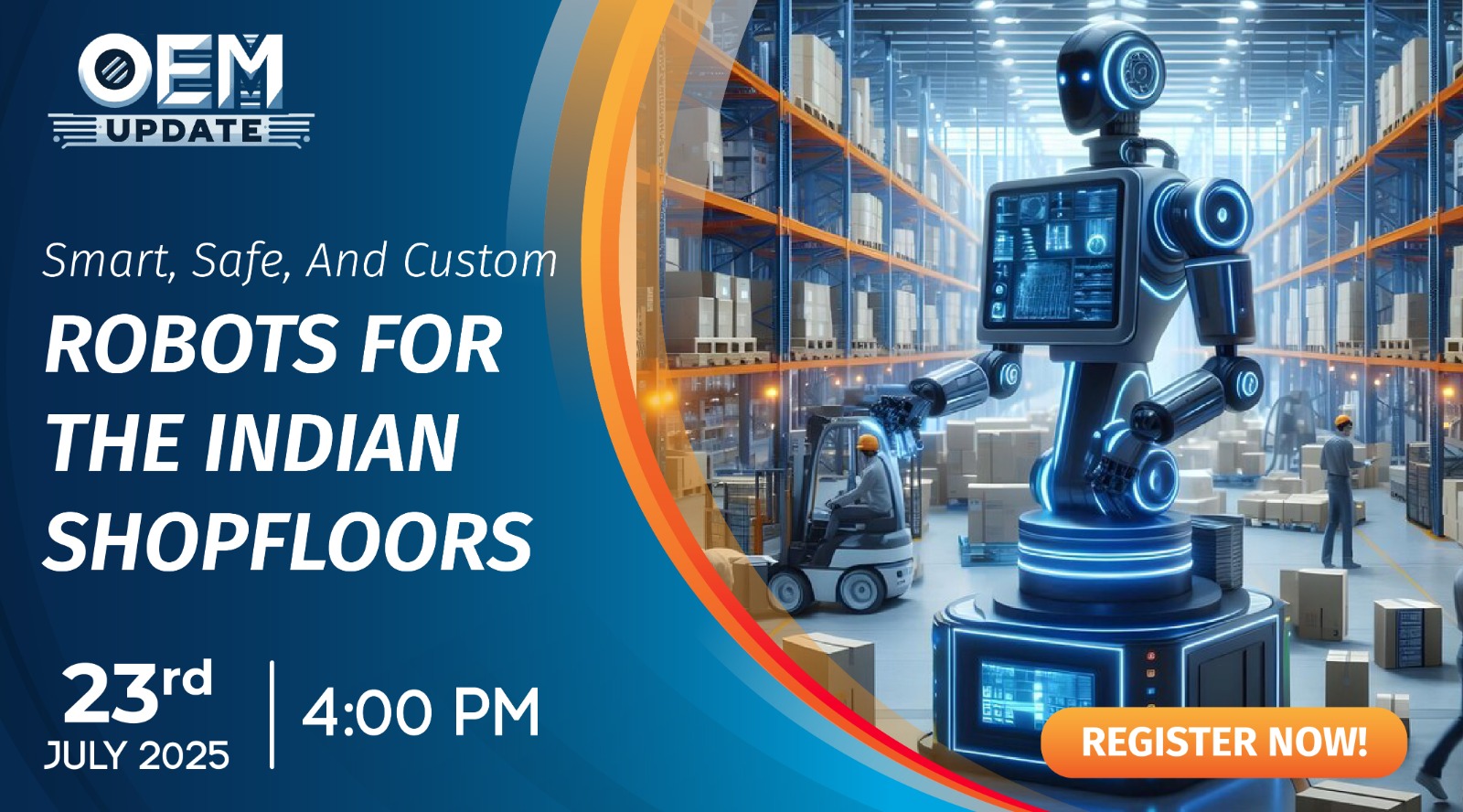Unlocking sustainable water solutions
By OEM Update Editorial September 1, 2023 11:42 am IST
In an era defined by environmental consciousness and sustainability, managing water resources is paramount for industries across the globe. As the demands on freshwater sources intensify, manufacturing facilities face a dual challenge: meeting their water needs while minimising their environmental impact.
One of the fundamental challenges is the need for more data regarding contaminants in wastewater streams. In many instances, water treatment plants need more comprehensive information about the exact composition of their wastewater. Shardul Apte, Director of Design and Sales at Goldfinch Engineering Systems Private Limited – Evaporator Division, notes, “This data deficiency can result in system designs that fall short of effectively addressing the specific contaminants present.”
Moreover, mixing different wastewater streams can lead to the creation of new, previously unknown contaminants. These unexpected compounds can further complicate the treatment process, potentially rendering the existing systems ineffective. It becomes evident that adapting to these unforeseen challenges necessitates a flexible approach to wastewater treatment.
Traditional wastewater treatment systems are often designed based on specific data parameters, which may not align with the actual composition of the wastewater. This mismatch between design and reality underscores the importance of continuously monitoring and assessing wastewater quality. Apte’s insights highlight the critical need for innovative, data-driven solutions that can adapt to the evolving landscape of wastewater contaminants.
Sustainable wastewater treatment in manufacturing
Priyanka Khaire, Deputy Manager of Bioremediation at Organica Biotech Pvt. Ltd., noted, “The wastewater treatment industry is undergoing a transformation driven by a confluence of factors. From environmental concerns and stringent regulations to technological advancements and sustainability goals, the industry is evolving to meet the demands of a changing world.
One key driving force is governments’ imposition of stringent environmental regulations and compliance standards worldwide. These regulations compel industries to treat wastewater efficiently, ensuring that pollutants are removed to meet increasingly stringent water quality standards. The result is a push towards adopting advanced wastewater treatment technologies and processes.”
Global water scarcity concerns are another catalyst for change. Responsible water management practices, including reusing treated wastewater for non-drinking purposes, are becoming more prevalent. This not only conserves precious freshwater resources but also aligns with sustainability goals. Corporate Social Responsibility (CSR) initiatives push companies to prioritise sustainability and implement effective wastewater treatment solutions. Technological advances, such as advanced biological treatments and AI-driven optimisation, are revolutionising the industry by making treatment processes more efficient and effective.
Public awareness of environmental issues also drives industries to adopt eco-friendly wastewater practices. This growing ecological consciousness pushes companies to embrace sustainable solutions and reduce their environmental footprint. Urban population growth and increased industrial activities generate more wastewater, making searching for sustainable wastewater solutions even more critical.
Innovations in zero liquid discharge
Mandar Vaijnapurkar, Head of Drives Sales, Marketing & Services, India, at Danfoss, sheds light on innovative approaches to wastewater management. Vaijnapurkar highlights two promising strategies: Zero Liquid Discharge (ZLD) and Minimal Liquid Discharge (MLD). ZLD and MLD are gaining traction in wastewater management by aiming to eliminate or drastically reduce liquid waste leaving industrial facilities. These approaches prioritise the reclamation and reuse of water, aligning with sustainability goals. However, a historical challenge with ZLD and MLD has been their high energy consumption, particularly in the traditional thermal-based methods. Recent studies suggest that incorporating membrane-based processes can significantly reduce energy consumption by up to 75%. This advancement is a game-changer in making ZLD and MLD more energy-efficient and environmentally friendly.
Evolving environmental regulations
Changing environmental regulations plays a pivotal role in shaping wastewater treatment practices in manufacturing. These regulations drive the adoption of more efficient and sustainable technologies, as pointed out by our experts. Stricter rules, especially regarding pollution removal and water quality standards, push industries to adopt advanced treatment techniques. These evolving regulations encourage innovation in wastewater treatment, leading to the development of sustainable technologies capable of handling emerging contaminants effectively. Resource recovery from wastewater, inspired by many regulations, is rising. Technologies like anaerobic digestion are being used to turn organic waste into biogas, promoting a circular economy approach.
Regulations in water-scarce regions are driving advanced treatment for water reuse, such as membrane filtration and UV disinfection. Public awareness and community pressure further influence these regulations, encouraging the adoption of sustainable wastewater practices.
Solutions for diverse wastewater challenges
Mandar Vaijnapurkar added, “Emerging Contaminants (ECs) are a growing concern in water sources worldwide. These micropollutants threaten biology and human health, with potential implications for the rise of antimicrobial-resistant bacteria.
Standard biological treatments often need to remove ECs from wastewater. Advanced oxidation processes, such as ozonation and visible light-activated photocatalysts, promise to eliminate most ECs from water sources effectively. This breakthrough is critical for safeguarding human health and preventing the spread of antimicrobial resistance.”
Sewage-to-water recycling
As global water consumption rises, manufacturers must consider sewage-to-water recycling as a viable and sustainable solution. A rapidly industrialising world has resulted in large volumes of wastewater being discharged into the environment daily, with only half of it being treated.
Untreated wastewater not only threatens water security and ecosystem health but also has a significant impact on greenhouse gas emissions. The greenhouse gas footprint of untreated wastewater is three times higher than that of treated wastewater. This underscores the urgent need for alternative wastewater treatment measures that recover usable water.
Integrating circular economy principles into wastewater treatment is a forward-looking approach that harnesses wastewater’s potential for resource generation. By promoting closed-loop systems and minimal waste, sewage-to-water recycling is becoming a vital component of sustainable water resource management.
Shardul Apte, Director – Design and Sales, Goldfinch Engineering Systems Private Limited – Evaporator Division
“Water treatment plants lack comprehensive information about the exact composition of the wastewater they are tasked with treating, making it one of the fundamental treatment challenges.”
Mandar Vaijnapurkar, Head of Drives Sales, Marketing & Services, Danfoss India
“The integration of circular economy principles in wastewater treatment is a forward-looking approach that harnesses wastewater’s potential for resource generation, promoting a closed-loop system for minimal waste and optimal resource use.”
Priyanka Khaire, Deputy Manager – Bioremediation, Organica Biotech Pvt. Ltd.
“Commitment to sustainable solutions should extend beyond technical innovation to include capacity building and community engagement, ensuring that effective wastewater treatment benefits everyone.”
Cookie Consent
We use cookies to personalize your experience. By continuing to visit this website you agree to our Terms & Conditions, Privacy Policy and Cookie Policy.
















